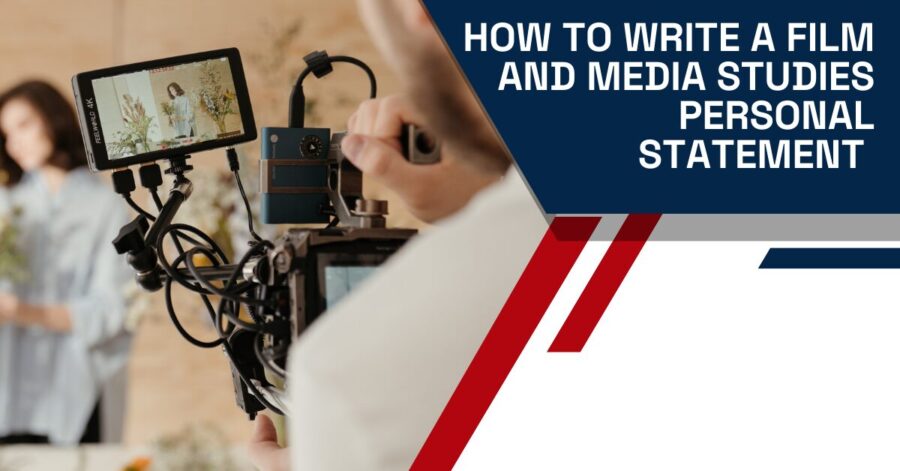
- Legal Templates
- Finance Templates
- Log Templates
- Planner Templates
- Agreement Templates
- Agenda Templates
- Certificates
- Analysis Templates
- Report Templates
- Letter Templates
- Medical Templates
- Remote Working Policy Template
- Work From Home Templates


18+ Free Sample Motivation Letter Templates (Word, PDF)
A motivational letter, also known as a letter of motivation or a personal statement, is a document that is usually written when applying for a job, scholarship, internship, admission to a program in education, or any other opportunity where you need to convince the recipient why you. is the ideal candidate. It serves as a way to express your motivation, qualifications, and the reasons why you are interested in the position or opportunity. In this article, you’ll find a collection of free Simple Motivation Letter Templates and samples in PDF, Word, and Excel format to help you make your work effective.
Table of Contents
Download Free Sample Motivation Letter Templates
Purpose of motivational letters.
A motivational letter, often called a cover letter or a statement of purpose, serves several important purposes in a variety of contexts:
When applying for a job, a motivational letter accompanies your resume or CV. Its purpose is to introduce yourself, explain why you are interested in the position, and highlight your qualifications and skills that make you a suitable candidate for the job. This allows you to personalize your application and make a strong case for why you should be considered for the role. When applying to colleges or universities, a motivational letter is usually required as part of the application process. In this context, it allows you to explain your academic and personal motivations for pursuing a particular study program, show your passion and commitment, and show your relevant experiences and achievements. When applying for scholarships, a motivational letter is often necessary to explain why you deserve the scholarship and how it will help you achieve your academic goals or career.
This is an opportunity to convince the scholarship committee that you are a worthy recipient. If you are looking for an internship or a volunteer position, a motivational letter can help you express your interest in the opportunity, describe how it aligns with your career goals, and highlight what you can bring to the organization or project. In academia and research, a motivational letter can be part of a grant application or research proposal. It allows you to outline the importance of your research, your research goals, and why you are the right person to carry out the project. Sometimes, a motivational letter can be used to express your interest in working with someone or to request mentorship or guidance from a more experienced professional. In this case, it will help you make a compelling case for why the person should consider your request.
Elements of a Motivational Letter
A motivational letter often called a personal statement or statement of purpose, is a document in which you express your motivation and reasons for applying for a specific position, program, or opportunity. it’s typically used when applying for jobs, scholarships, internships, or educational programs. Here are some key elements of a motivational letter:
- Introduction: Begin by addressing the recipient, usually with a formal greeting. State the purpose of the letter and state the specific opportunity you are applying for.
- Personal Information: Provide a brief overview of your background, including your name, educational qualifications, relevant work experience, and any relevant personal details.
- Motivation: Explain why you are interested in the position or opportunity. Mention your passion, interests, and the reasons that motivated you to apply. Be specific about what attracted you to this particular opportunity.
- Qualifications and Skills: Highlight your relevant skills, qualifications, and experiences that make you a strong candidate. Use examples to illustrate your abilities and achievements.
- Future Goals: Discuss your career or academic goals and how this opportunity will help you achieve them. Explain how it fits into your long-term plans.
- Conclusion: Summarize your main points and restate your motivation for the opportunity. Express your gratitude for considering your application.
- Formal Closing: Use a formal closing, such as “Sincerely” or “Yours faithfully,” followed by your name and signature.
- Formatting and Length: Make sure your letter is well-organized, free of errors, and follows any specific formatting instructions given by the recipient. Typically, a motivational letter is about a page long.
Benefits of using Motivational Letter Templates
Using sample motivational letter templates can provide many benefits, especially if you are writing a motivational letter for a specific purpose such as a job application, college admission, or scholarship application. Here are some advantages of using these templates:
- Sample templates provide a structured format for your motivational letter. They usually include sections for the introduction, body, and conclusion, which help you organize your thoughts and information together.
- Templates are often designed with a professional appearance with appropriate fonts, spacing, and formatting. This will make your letter look more polished and impressive to the recipient.
- Creating a letter from scratch can be time-consuming. Using a template saves time because you can fill in the relevant details and customize it to your needs.
- Templates help ensure clarity and consistency in your correspondence. It often includes prompts or guides for each section, preventing you from forgetting important details or straying off topic.
- Sample templates often contain content, which can serve as inspiration or guidance for what to include in your letter. This is very helpful if you are not sure how to express your thoughts or achievements.
- Templates often use professional and persuasive language, helping you express your motivation and qualifications effectively.
- Templates can include tips or warnings about common mistakes to avoid, such as too generic language or too much self-promotion.
- While the templates provide a framework, you can still customize them to make your letter unique and tailored to your specific situation. You can add personal anecdotes or experiences to illustrate your letter.
- Using a template can boost your confidence in writing a motivational letter, especially if you are inexperienced in this type of writing. Knowing that you have a solid structure to work with can reduce anxiety.
How to use a Motivation Letter Template
Using motivation letter templates can be a helpful starting point if you need to write a motivation letter for various purposes such as job applications, scholarships, or university admissions. Here is a step-by-step guide on how to effectively use these templates:
- Read and Analyze the Template: Read the sample motivation letter carefully to understand its structure and content. Pay attention to the opening, body paragraphs, and closing, and see how the writer presents their qualifications, experiences, and motivations.
- Personalize the Template: Avoid using the as-is template, as it does not accurately reflect your unique qualifications and experiences. Customize the template to include your personal information, such as your name, contact details, and specific details related to your application. Tailor the content to match your qualifications, skills, and experiences relevant to the position or program you are applying for.
- Highlight Your Unique Qualities: Use the template as a guide to help you structure your cover letter, but be sure to emphasize what sets you apart from other applicants. Share your skills, accomplishments, and passion for the opportunity.
- Follow Formatting and Style: Keep the same formatting and style as the template, including fonts, margins, and spacing. Make sure your letter looks neat and professional.
- Proofreading and Editing: Proofread your motivation letter carefully for grammar, spelling, and punctuation errors. Edit the content so that it is clear, concise, and engaging.
- Keep a Positive Tone: Maintain a positive and enthusiastic tone throughout the letter. Express your genuine interest and enthusiasm for the opportunity.
How To Download Free Motivation Letter Templates As PDF Or Word Files
I can provide you with basic templates for a motivation letter that you can use as a starting point. However, please keep in mind that the letter should be personalized and tailored to your specific situation and the job or program you’re applying for.
To Download As A PDF
- Open a text editor such as Microsoft Word or Google Docs.
- Copy and paste the template into the text editor.
- Format and customize the letter to your liking.
- Save the documents.
- To convert it to PDF, many word processing programs have a “Save As PDF” option in the” File” menu. Select that option to save the documents as a PDF File.
To Download As A Word File
- Open a text editor such as Microsoft Word or Google Docs.
- Format and customize the letter to what you like.
- Save the documents with a .docx extension (for Microsoft Word) or in the appropriate format for your text editor.
In conclusion, motivational letter templates serve as valuable resources for individuals seeking to create persuasive and motivational letters for a variety of purposes. Whether you’re applying for a job, scholarship, admission to a university, or seeking sponsorship, these templates provide a structured framework and helpful content ideas to convey your motivation, qualifications, and effective goals. While using these templates as a starting point, it’s important to personalize your letter to reflect your unique experiences, aspirations, and the specific requirements of the opportunity you’re seeking.
Tailoring your motivational letter ensures that it stands out and is heard by the recipient. In addition, remember that a well-structured motivational letter should include a compelling introduction, a body that highlights your relevant qualifications and achievements, and a compelling conclusion that repeats your enthusiasm and expressing gratitude. Proofreading and editing are essential to ensure clarity, professionalism, and error-free communication.
Reference Link
How useful was this post?
Click on a star to rate it!
Average rating / 5. Vote count:
No votes so far! Be the first to rate this post.
Related Posts:

- 10+ Free Delivery Slip Templates – Excel, DOC, PDF
- 15+ Impact Assessment (IA) Templates Free
- 20+ Blank Slip Templates – Free Printable Sample
- 25+ Free Remote Working Policy Template & Sample (PDF)
- 50+ Free Work From Home Form Templates
Everyone loves free Templates

American Templates provides you printable and downloadable templates and resources. All these templates are free to download and use for anyone.
© 2022 AmericanTemplates
- Privacy Policy


Guidance from our top admission experts — for free!

- Admit Finder
Discover Past Admits, Gauge Your Chances!
- Shortlist Builder
Personalized University Picks, Just a Click Away.
- Course Finder
Navigate Global Courses Tailored for You
- Scholarship Finder
Unlock Funding Opportunities Worldwide.

Get tailored study abroad advice.

Sign in for exclusive content!

Planning to study abroad?

Build your target shortlist and see your odds of getting into top schools with Ambitio's AI shortlist builder!

Heading Out Already?
Our Ivy League mentors and top admission experts can help with personalized tips to get you into your dream school
6 minutes read
Understanding the Difference Between a Motivation Letter and Personal Statement
Dirghayu Kaushik
30 August 2024

Worried about the cost of Studying Abroad?
Sign up to access 25 game-changing scholarships that could cover your costs.
- Introduction
Navigating through college admissions and scholarship applications can be a challenging journey, especially when it comes to articulating your aspirations and qualifications.
Two critical elements in this process are the personal statement and motivation letter. Although they may seem similar, understanding their distinct purposes and crafting them effectively can significantly influence the success of your application.
This comprehensive guide aims to demystify these documents, providing insights and tips on how to effectively articulate your story and ambitions.
Stuck on How to Pick Your Ideal College?
Sign up to access your tailored shortlist and simplify finding your ideal college.
- The Essence of a Personal Statement
Crafting Your Narrative
A personal statement is your canvas to paint a picture of who you are beyond grades and test scores. It is an opportunity to narrate your journey, highlighting personal experiences, challenges, and triumphs.
This document should reflect your personality, values, and the driving forces behind your aspirations. To begin, brainstorm key moments in your life that have shaped your identity and perspective.
These could include pivotal experiences, influential relationships, or significant achievements. The goal is to provide the admissions committee with a holistic view of your character and potential.
Beyond Academics: Showcasing Personal Growth
While academic achievements are important, a personal statement should also delve into personal growth and development. Reflect on how your experiences have cultivated resilience, empathy, creativity, or leadership skills.
These attributes are invaluable in an academic setting and demonstrate your readiness to contribute to a university community.
See how Successful Applications Look Like!
Access 350K+ profiles of students who got in. See what you can improve in your own application!
- Decoding the Motivation Letter
Aligning with Academic and Career Goals
The motivation letter, often referred to as a statement of purpose or SOP , is a more targeted document. It’s your platform to articulate why you are drawn to a specific program or opportunity.
This letter should align your academic background, research interests, and career objectives with the offerings and ethos of the program you are applying to.
In this letter, specificity is key. Discuss particular courses, faculty members, or research opportunities within the program that resonate with your interests.
Explain how these align with your long-term goals and how your previous experiences have laid the foundation for your future pursuits.
Demonstrating Research and Professional Aspirations
Your motivation letter should also reflect your understanding of the field or industry you wish to enter. Discuss current trends, challenges, and innovations, and how you aspire to contribute to the field.
This not only shows your passion and knowledge but also your potential to make meaningful contributions.

Start Your University Applications with Ambitio Pro!
Get Ambitio Pro!
Begin your journey to top universities with Ambitio Pro. Our premium platform offers you tools and support needed to craft standout applications.
Unlock Advanced Features for a More Comprehensive Application Experience!

Start your Journey today
- The Art of Personalization in Application Documents
Tailoring Your Story to Each Application
One key aspect of writing effective personal statements and motivation letters is personalization. Each application should be crafted with the specific institution and program in mind.
Research the university’s values, mission, and what they look for in a candidate. This research will guide you in tailoring your narrative to resonate with the admissions committee.

Reflecting Institutional Values and Culture
Your documents should reflect an understanding of the institution’s culture and values. For instance, if a university is known for its commitment to community service, highlight your involvement in similar activities.
This demonstrates not only your alignment with the university’s values but also your ability to contribute to its community.
- Addressing Challenges and Overcoming Obstacles
In your journey towards academic and professional success, addressing challenges and overcoming obstacles is crucial. Here’s how to effectively incorporate these elements into your personal statement or motivation letter:
- Identify Key Challenges: Begin by identifying the significant challenges you’ve faced. These could be personal, academic, or professional obstacles that have had a profound impact on your journey. It’s important to choose challenges that have contributed meaningfully to your growth and development.
- Describe the Obstacle Clearly: Provide a clear and concise description of the obstacle. This helps the reader understand the context and the gravity of the challenge you faced. Be specific about the nature of the obstacle, whether it was a personal hardship, an academic setback, or a professional hurdle.
- Emphasize Your Response: Focus on how you responded to the challenge. Describe the actions you took to overcome the obstacle. This might include seeking help, developing new strategies, or pushing yourself out of your comfort zone. The goal is to highlight your resilience, adaptability, and problem-solving skills.
- Reflect on Personal Growth: Discuss the personal growth that resulted from overcoming these challenges. This could be in the form of newfound resilience, improved problem-solving skills, increased empathy, or a better understanding of your own strengths and weaknesses.
- Connect to Your Goals: Make a clear connection between the challenges you’ve overcome and your academic or career goals. Explain how these experiences have prepared you for the future challenges you might face in the program or career you are pursuing.
- Showcase Development of Skills: If applicable, highlight any skills or knowledge you gained as a result of overcoming these obstacles. For example, overcoming a personal challenge might have improved your communication skills, while overcoming an academic challenge might have enhanced your research or analytical abilities.
- Demonstrate Your Resilience: Use your experiences to demonstrate your resilience. Show the admission committee that you are capable of bouncing back from setbacks and that you have the tenacity to persevere in the face of adversity.
- Inspire with Optimism: Convey a sense of optimism and a positive outlook. Even when discussing challenges, it’s important to maintain a tone that is hopeful and forward-looking. This shows that you are not deterred by difficulties but are instead motivated by them.
- Avoid Over-Dramatization: While it’s important to be honest about the challenges you’ve faced, avoid over-dramatizing them. Stick to the facts and focus on the positive outcomes and lessons learned rather than dwelling excessively on the negative aspects.
- End with a Forward-Looking Statement: Conclude this section by looking towards the future. Discuss how these experiences have equipped you to handle future challenges and how they have influenced your career or academic aspirations.
By effectively addressing challenges and obstacles in your personal statement or motivation letter, you not only showcase your resilience and growth but also demonstrate your preparedness for the rigors of higher education or the professional world.
Remember, it’s not just about the challenges themselves, but how you’ve overcome them and what you’ve learned in the process that counts.
Balancing Personal Anecdotes and Professional Aspirations
The interplay of the personal and professional.
In both your personal statement and motivation letter, there’s a delicate balance to be struck between personal anecdotes and professional aspirations.
While personal stories provide a glimpse into your character, they should also tie back to your academic and career goals.
Connecting Personal Experiences to Future Goals
Link your personal experiences to your future goals. For instance, if you’re applying to a medical program, a personal story about a healthcare challenge in your family could be connected to your aspiration to improve healthcare systems.
This creates a cohesive narrative that underscores the continuity between your past experiences and future objectives.
For your Astronomy personal statement, click here
Concluding with Impact: Leaving a Lasting Impression
Crafting a memorable conclusion.
The conclusion of your personal statement or motivation letter is your final opportunity to leave a lasting impression. Reinforce your enthusiasm for the program and your readiness to take on the challenges it presents.
Express your eagerness to contribute to the university community and your confidence in your ability to succeed.
The Future Vision
End with a forward-looking statement. Share your vision for how the program will shape your future and how you, in turn, plan to contribute to your field.
A strong conclusion not only reiterates your fit for the program but also leaves the reader with a clear understanding of your aspirations and potential impact.
Crafting a compelling personal statement and motivation letter is a critical step in the journey toward academic and professional advancement. These documents are more than mere formalities; they are reflections of your personality, aspirations, and potential.
By understanding their distinct purposes and effectively articulating your story and goals, you can enhance the impact of your application and move closer to achieving your academic and career objectives.
Remember, each document is a unique opportunity to showcase different facets of your journey and how they align with your future aspirations.
With careful thought and a clear strategy, you can create powerful narratives that resonate with admissions committees and pave your way to success.
What is the main difference between a personal statement and a motivation letter?
A personal statement is a broader document that describes your overall personality, experiences, and goals, while a motivation letter is more focused on how a specific program or opportunity aligns with your academic and professional aspirations.
Can the same document be used as both a personal statement and a motivation letter?
While there might be some overlap in content, it’s important to tailor each document to its specific purpose. A personal statement should be more about you as an individual, whereas a motivation letter should be closely aligned with the specific program or opportunity.
How long should these documents be?
Both documents should be concise and to the point. Typically, they should not exceed one page, ensuring clarity and focus on the most relevant aspects.
What should be included in a motivation letter?
Your motivation letter should include your specific academic and professional interests, how they align with the program you’re applying to, and how your past experiences have prepared you for this next step.
Is it necessary to include personal anecdotes in a personal statement?
Yes, personal anecdotes can be very effective in a personal statement as they provide a more intimate glimpse into your life, making your application more memorable.
Spread the Word!
Share across your social media if you found it helpful

Table of Contents
- • Introduction
- • The Essence of a Personal Statement
- • Decoding the Motivation Letter
- • The Art of Personalization in Application Documents
- • Addressing Challenges and Overcoming Obstacles
- • Conclusion
Build your profile to get into top colleges
Phone Number
What level are you targetting
Almost there!
Just enter your OTP, and your planner will be on its way!
Code sent on
Resend OTP (30s)

Your Handbook Is Waiting on WhatsApp!
Please have a look, and always feel free to reach out for any detailed guidance
Click here to download
Meanwhile check out your dashboard to access various tools to help you in your study abroad journey

Related Blogs

3 Event Manager Personal Statement Samples

How to write a Graduate Medicine Personal Statement?

How To Write a Film and Media Studies Personal Statement
Find your Dream school now⭐️
Welcome! Let's Land Your Dream Admit.
Let us make sure you get into the best!
- 2024 Winter
- 2024 Spring
- 2024 Summer
Enter verification code
Code was sent to
- Our Experts
Connect with us on our social media
